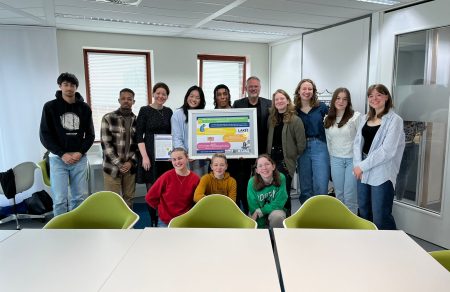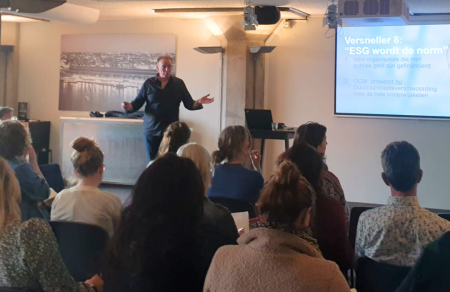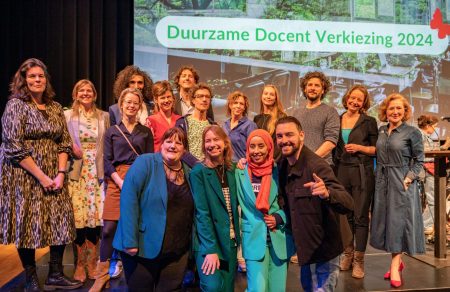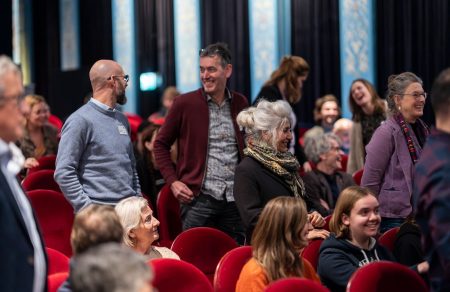Wondergem, Bram, 2020. Sustainable development. An introduction. Gompel & Svacina Publishers, 's-Hertogenbosch/Oud-Turnhout.
Reviewer: Chris Maas Geesteranus
General
This little book, some 140 pages in slightly larger than A5 format, deals with important aspects of sustainable development in a systematic and well-organized manner. It seems, mainly because of the somewhat contemplative and descriptive way the author approaches relevant topics, that this book is primarily a learning/study book - it contains few strong opinions.
It is conveniently organized: a two chapters on the core issues the author identifies, a few chapters on economics and capitalism, solution directions for the three ppp domains, and suggestions for personal action, in various roles that each person has. This makes it immediately clear for whom the book seems primarily intended: for the individual, or, as the back cover says: "..... for everyone striving for a livable and just world. But also for education, public administration and businesses, it is reported.
In the introduction, the author states that he starts from the ppp trilogy. Although this is quite manageable, or at least manageable, the question must be asked in what way the values of the three domains are weighed against each other. Is there a weighing mechanism for this in a common "language"? At least not to my knowledge.
And besides: in recent years it has become increasingly clear to me that there should be a fourth "p": politics - and specifically geopolitics, or global power relations. We now see to what disastrous consequences for humans and their environment (biologically speaking) it can lead: war in Ukraine and China's territorial expansion attempts as a few examples. When this booklet was written, the former was not yet an issue, the latter was. My plea therefore is that, should there be a subsequent printing, this fourth "p" be added and elaborated upon. Which indicates all the more the need for an integrated consideration framework.
In my view, what is missing from the text is a clear discussion of the position of man in the Earth system: either, on the one hand, the custodian/rentmaster of nature; or, on the other hand, man as just one, integral (albeit very dominant) organism in the whole of that system. That first vision has been propagated by administrators and politicians for centuries. The second vision, albeit in different words, is well represented in Hans Meek's book "Ecologica" (2017). Its publisher, Eburon, writes: "This book uses a biological-ecological perspective, in which humans are embedded in ecosystems and driven by the same drive for growth as other organisms. This drive for growth is usually limited by ecological environmental factors'.
Let the reader think about that, at least for themselves!
Urgency
Precisely because of the balanced approach, as described above, there is also another side to it: as a reader, I experience little urgency of the issues at stake in the, according to the author, core ecological and social issues. For example, on page 19 we can read: 'Think of nature as a solid house of cards; currently, however, so many species (cards) are disappearing that the whole thing is collapsing'. And that's just what it says there: 'collapses'. About the dramatic consequences of this (for humans) the text could have said something, it seems to me ......
By the way, what the author means here, I assume, is the functioning of major ecosystems. But it doesn't say that; this - and subsequent - paragraphs are mostly about biodiversity. "Pity but inevitable," some might think. Of course, in the impoverishment of biodiversity lies a major cause of the collapsing functionality (for humans at least) of ecosystems but there is more to it than that: ocean acidification, temperature rise, rampant forest clearing, land degradation, deposition of substances, etc.
Side notes
Finally, a few critical comments on the design and structure of the text. To begin with, an index would have enriched the searchability of themes/concepts. An example. The Sustainable Development Goals are playing quite a big role in (sustainability) education and teaching at the moment. But where do you find those SDGs in the text? At least not in the table of contents already.
The same goes for the literature. The reader may get the impression that the author has oriented himself considerably on the literature (list at the back of the book), but it offers no appeal to the reader. Much better would have been to make references to endnotes and (related) literature in the text; then it would also have been immediately "themed. So arranged, that could have encouraged the reader to even take up literature. That is not the case now.
What can we do with this book?
In my opinion, the strength of this book lies in the relative compactness and clarity of the issues addressed. Certainly, the author does not dig down into the caverns of human action, nor does he make a statement about the position of the "organism human" in the Earth system - including all the (for us negative) feedbacks from that system. He limits himself primarily to its actual consequences as we experience them now. This avoids a (for many perhaps too) philosophical - and therefore possibly radical - intention.
Based on the above, the practical usefulness of the book is, in my opinion, good. However, since - as noted earlier - it is primarily a study and learning book (and thus not primarily a reading book), it seems especially good to use as a reference work and/or fit into a course or training situation, for example, for workers in nature and environmental education. Use, as the back cover suggests, in (primary) education and in public administration also seems possible. Whether the business community, another suggestion there, will find in it sufficient "clues [CMG] to include or deepen the theme of corporate social responsibility in its business strategy," remains to be seen. Presumably, a more direct "language" for business is needed for this. Finally, it is conceivable that this book could play a role in courses such as popular universities offer.
The book contains no didactic instructions or forms of work - nor is it intended for that purpose. If you want to know more about that, I refer you to the website Bronnen voor NME, which includes a modern article (with literature) on didactics by Stan Frijters; see https://bronnen-voor-nme.nl/thema-s/pedagogiek-didactiek#lees-meer-over-didactiek-2.
Those seeking inspiration for (teaching) practice can visit https://www.scheltema.nl/boek/?authortitle=martin-de-wolf-eefje-smit-peter-hurkxkens/lesgeven-over-duurzame-ontwikkeling-9789044136449, among others. A review of it can be found at: https://lerenvoormorgen.org/lesgeven-over-duurzame-ontwikkeling-didactische-handreiking/.







